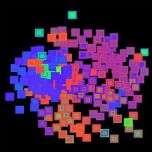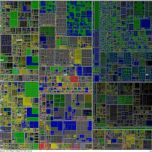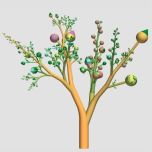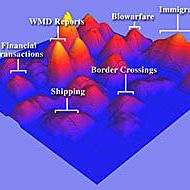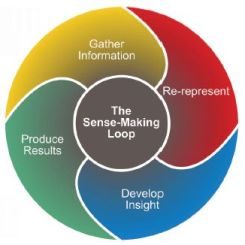Visual Analytics is the
science of
analytical reasoning facilitated by interactive visual interfaces.
People use visual analytics tools and techniques to synthesize
information and derive insight from massive, dynamic, ambiguous, and
often conflicting data, provide timely, defensible, and understandable
assesments; and communicate assesment effectively for action. The
overall goal is to detect the expected and discover the unexpected.
Visual analytics is a multidisciplinary field that includes the
following focus areas:
- Analytical reasoning techniques that enable users to obtain deep
insights that directly support assesment, planning, and decision making
- Visual reprentations and interaction techniques that take
advantage of the human eye's broad bandwidth pathway into the mind to
allow users to see, explore, and undrestand large amounts of
information at once
- Data representations and transformations that convert all
types of conflicting and dynamic data in ways that support
visualization and analysis
- Techniques to support production, presentation, and dissemination
of the results of an analysis to communicate information in the
appropriate context to a variety of audiences.
The course will discuss and combine principles from cognitive science,
information visualization, machine-based reasoning and learning, and
data mining. It is planned to have a variety of researchers proficient
in these fields come and give guest lectures in the course. Visual
analytics has a large and growing spectrum of application areas ranging
from commercial (finance, business, medical/health care, insurance),
law enforcement (money laundering, capital crimes), homeland security
(combat terrorism, border security), national security (intelligence,
information access) to information technology (internet security,
network analysis, software management and debugging, etc).
In the final project you may
choose among several topics related to the course content. You will
first
write a proposal and then keep a log about your activites via a web
page. At the end of the semester, you will present your project to the
rest of the class and document your findings on the web page.
